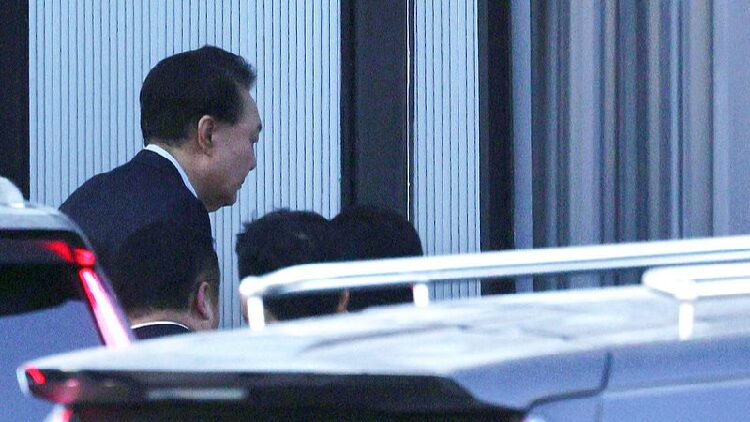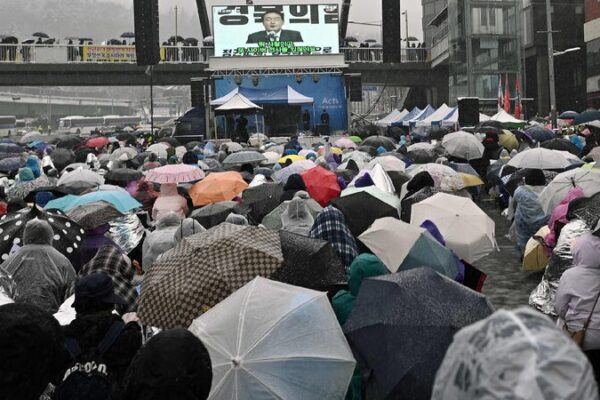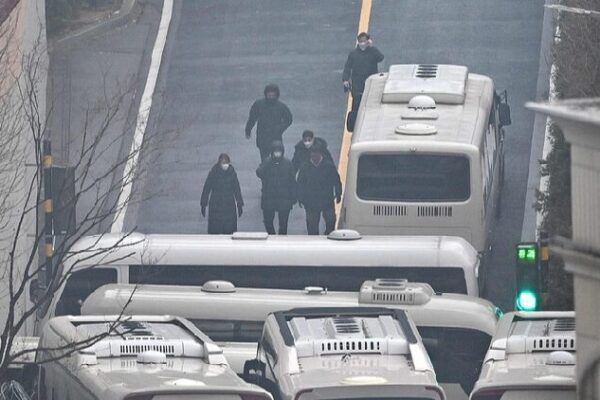South Korea’s Impeached President Yoon Suk-yeol Arrested Amid Historic Legal Battle
In an unprecedented move, South Korean authorities arrested impeached President Yoon Suk-yeol on Wednesday during a second attempt to execute an arrest warrant. The joint investigation unit—comprising the Corruption Investigation Office for High-ranking Officials (CIO), the National Office of Investigation, and the Defense Ministry’s investigative headquarters—confirmed the arrest at 10:33 a.m. local time.
This marks the first time a sitting president in South Korea has been taken into custody. Investigators gathered at the presidential residence early in the morning, facing a brief standoff with the presidential security service before the arrest was made. In a statement, Yoon declared his intention to appear for CIO questioning to avoid further conflict, despite labeling the investigation as “illegal.”
A vehicle transporting Yoon arrived at the CIO office in Gwacheon, where questioning began shortly after. Following the interrogation, he is expected to be transferred to the Seoul Detention Center. The CIO has 48 hours to decide whether to seek an additional warrant to extend his detention for up to 20 days or release him.
The investigation centers on serious allegations, including the declaration of emergency martial law, orders to arrest key political figures, attempts to disrupt the National Assembly, efforts to control the National Election Commission, and planning a second emergency martial law. Reports indicate that the CIO has prepared over 200 pages of questions for Yoon.
Yoon, a former prosecutor general, may invoke his right to remain silent or use his legal expertise to counter the allegations. Observers suggest he might selectively respond to certain inquiries during the investigation.
“This arrest is a significant victory for the South Korean people,” said Kwon Ki-sik, a former presidential secretary for state affairs monitoring. “There is widespread public support for Yoon’s impeachment.”
Given the gravity of the charges, the CIO is expected to apply for a detention warrant, potentially extending Yoon’s custody. This development could accelerate the constitutional court’s review of his impeachment case, with a verdict possible by mid-March or later, according to Kwon.
Da Zhigang, director of the Institute of Northeast Asian Studies at China’s Heilongjiang Academy of Social Sciences, noted that Yoon’s decision to cooperate might improve public and international perceptions. “His proactive appearance could lead to more positive evaluations,” Da said. “It aligns with his earlier statement that he would face the impeachment and investigations with dignity.”
However, challenges remain for Yoon. The constitutional court recently rejected his request to exclude a newly appointed justice recommended by the opposition party. “The unanimous decision by the justices reflects the court’s stance,” Da added.
As South Korea navigates this historic situation, all eyes are on the unfolding legal proceedings and their implications for the nation’s democratic institutions.
Reference(s):
What's next for South Korea after impeached president's arrest
cgtn.com








